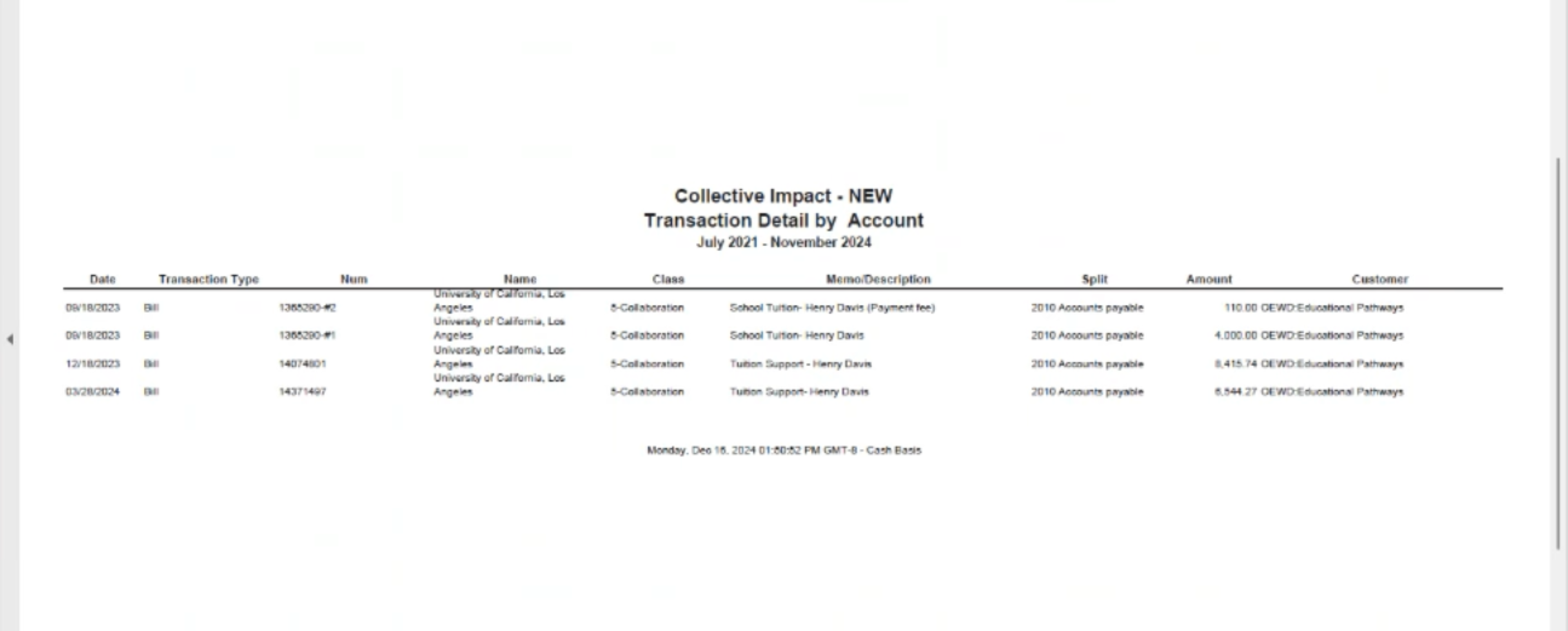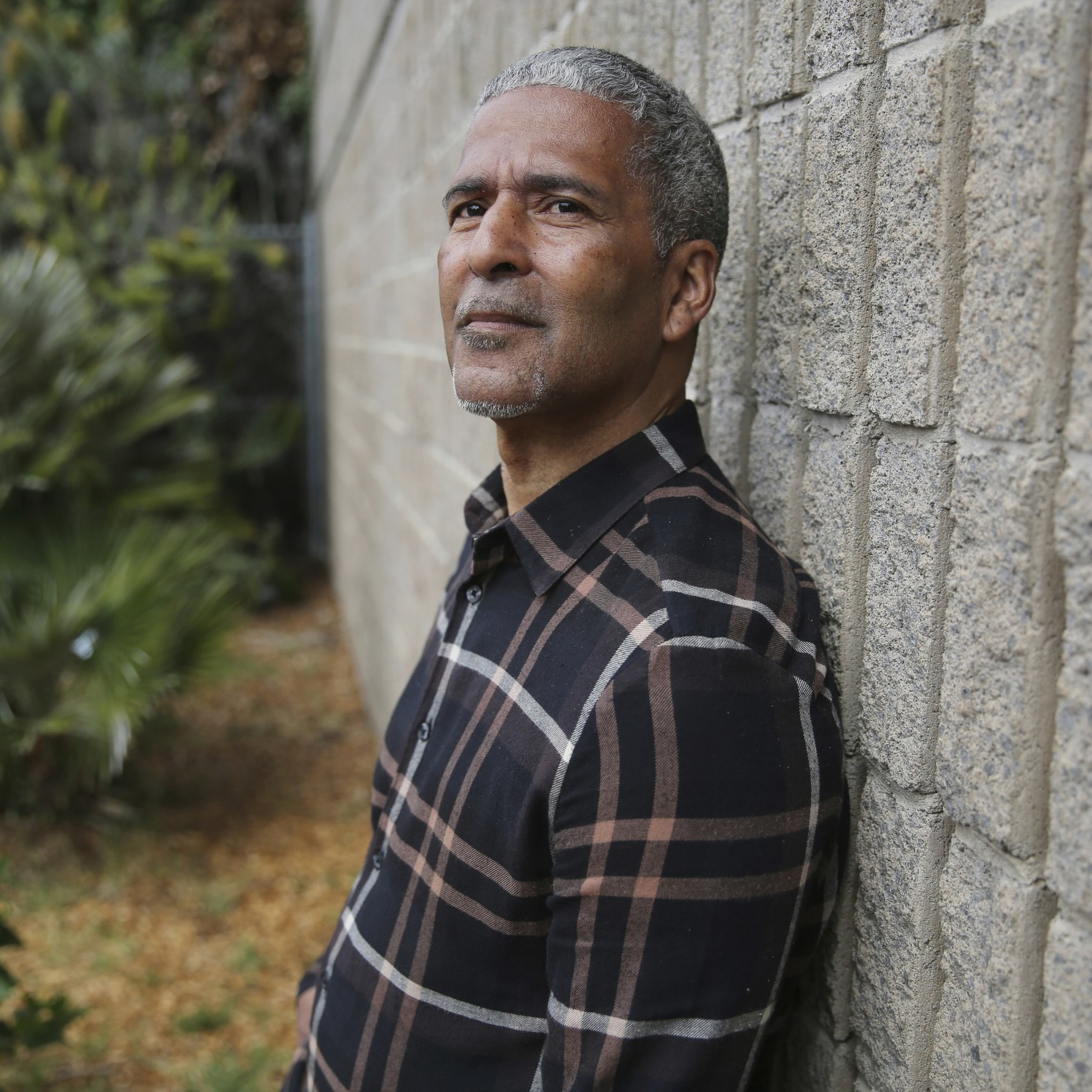Collective Impact was once a shining star among San Francisco’s vast network of nonprofits, growing from a humble after-school program in 2007 to an organization with an annual budget of $8 million that provides a slew of services to the Western Addition, a historically Black neighborhood.
Collective Impact now faces financial collapse after a scandal erupted last fall over allegations of fiscal misconduct involving a former city official, which led the city to strip the nonprofit of public funding.
Nearly a year later, Collective Impact is launching a bid to regain the city’s trust and qualify for public funding again. During an administrative hearing to consider the organization’s petition that started Monday and is expected to continue through the week, Collective Impact said it is so short on cash it could shutter within two months, leaving hundreds of clients without critical services, such as workforce development and literacy programs.
“Even with funding from non-city sources, Collective Impact anticipates a complete shutdown of its programs by October 2025, which will undoubtedly have an injurious effect on many Western Addition youth and families,” the nonprofit’s attorneys wrote in a filing before the hearing.
But the nonprofit faces serious head winds to receiving public money again.
On Tuesday, city officials revealed more troubling findings from their investigation into the organization's alleged misconduct, saying Collective Impact has refused to hand over critical financial information in response to the probe and that the nonprofit misused public funding for employee bonuses.

Problems for the nonprofit started in September, when The Standard reported that former Human Rights Commission Executive Director Sheryl Davis directed city contracts worth millions of dollars to Collective Impact while sharing a home with James Spingola, the nonprofit’s executive director. Davis never disclosed the relationship.
The revelations forced Davis’ resignation and cast a shadow over former Mayor London Breed’s signature program for the city’s Black community, the Dream Keeper Initiative. Some of the funding that Collective Impact received through the Human Rights Commission was allocated through the Dream Keeper Initiative.
The Standard also uncovered a separate organization sponsored by Collective Impact that used Dream Keeper Initiative funds for steak dinners, liquor, and first-class airfare — money that was earmarked for mentoring youths in the juvenile system and a podcast with a racial justice theme.
The city attorney’s office in March released a 28-page investigation into Davis’ connections to Collective Impact. The investigation included allegations that Davis used the nonprofit’s funds for personal enrichment through a years-long scheme of illegal gifts and bribes. The city attorney’s office said Davis used the organization’s money to cover her son’s UCLA tuition, pay for expensive travel, and prop up her independent business ventures, among other accusations.
The Standard previously reported that Collective Impact had reimbursed Davis thousands of dollars as a city employee for software subscriptions and other expenses.
The city this month published another tranche of evidence, highlighting how Davis’ and Spingola’s financial entanglement was tighter than previously thought. While she was a city employee, Davis signed official nonprofit forms for the organization, and she remains a signatory on Collective Impact’s bank account, according to the city. The nonprofit still has a corporate credit card in Davis’ name.
During the hearing Tuesday, city auditor Amanda Sobrepena testified that Collective Impact has refused to disclose charges on Davis’ credit card made from February 2020 to February 2022. (The nonprofit said it cannot access financial records on the card before March 2022 and maintains that it hasn't been used for nearly a decade.)
Auditors also discovered stipends of $500 and $1,000 paid by Collective Impact to its employees, money that Spingola described to Sobrepena as “appreciation payments.” City investigators said the grant from which the stipends were paid prohibits using the funds as bonuses for nonprofit employees.

“This case is about protecting valuable public resources from misappropriation,” Deputy City Attorney Aaron Wiener said Monday during opening remarks at the hearing.
The nonprofit’s attorneys disputed the city attorney’s findings, calling the charges “pure speculation” and “irresponsible and unreasonable inferences.”
Lauren Kramer Sujeeth, an attorney for Collective Impact, said the city’s charges were “factually flawed” and “legally unsupported.” Sujeeth said Spingola and Davis shared a living arrangement as roommates, and the amount of money claimed to have been misspent is a small fraction of the total funds Collective Impact used to benefit clients.
Spingola informed investigators during interviews that his relationship with Davis was not romantic.
“Errors are not corruption,” said Sujeeth. “Sloppiness is not willful misconduct.”
During the hearing, Collective Impact’s attorneys underscored the importance of city funding for the organization. They said that in the months since city funding stopped, the organization has relied on roughly $2 million in private financing to cover services that previously received public funding, including a summer program for 125 students.
The hearing proved contentious at times, with Collective Impact’s lawyers and city attorneys jousting over evidence and questioning for extended periods. It’s unclear when hearing officer Andrea McGary might rule on Collective Impact’s eligibility to receive city funding again. The city is petitioning for the organization to be barred from public financing until 2030.
The scandal has caused a ripple effect across the city’s nonprofit sector, especially among those serving Black communities.
In his first budget, Mayor Daniel Lurie combined the Human Rights Commission and another scandal-ridden department, the Department on the Status of Women, into the Agency on Human Rights, a plan the Board of Supervisors approved “to improve coordination across departments where mission and function are aligned.” Lurie also made significant budget cuts to both departments in the face of a historic $782 million deficit, raising concerns that alleged misconduct by some nonprofits has caused an irreparable effect on the broader community.

“They should get justice. They should face the music,” the Rev. Amos Brown said in an interview, referring to nonprofits that misused Dream Keeper Initiative funds. “But right now, the administration should not penalize the Black community.”
Collective Impact isn’t the only organization under the Human Rights Commission to face scrutiny this year. Investigators allege the Human Rights Commission gave special treatment when awarding contracts to the nonprofit Urban Ed Academy, whose founder in 2023 was charged on felony counts related to the misuse of public funds and bribery. Davis received a portrait worth $5,500 (opens in new tab) from Urban Ed Academy less than a month before she awarded the nonprofit a $270,000 grant.
More witnesses were expected to appear Tuesday afternoon during the administrative hearing, including Spingola, whose testimony could provide important details about Collective Impact’s conduct. Based on the length of previous testimony, the question-and-answer period could last hours.
Josh Koehn contributed reporting.

